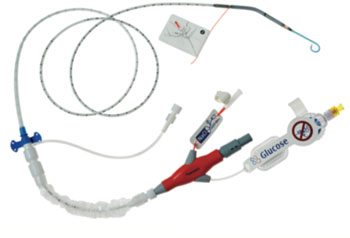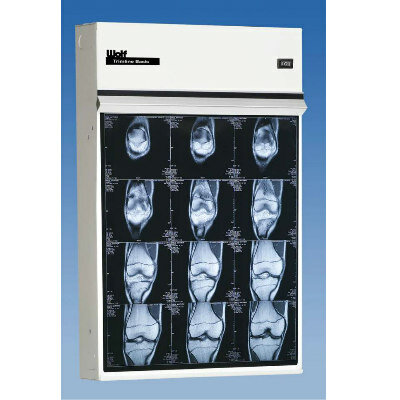Hemodynamic Device Helps Maintain Stable Heart Function
By HospiMedica International staff writers
Posted on 08 Apr 2015
A miniature blood pump system helps support stable heart function and circulation during certain high-risk percutaneous coronary intervention (HRPCI) procedures.Posted on 08 Apr 2015
The Impella 2.5 System is a heart pump intended for temporary use by patients with severe symptomatic coronary artery disease (CAD) and diminished (but stable) heart function who are undergoing a HRPCI procedure (such as balloon angioplasty and stenting), but are not candidates for surgical coronary bypass treatment. An interventional cardiologist first guides the Impella 2.5 into position via percutaneous angioplasty, guiding the loaded tip of the catheter through the arteries and into the left ventricle.

Image: The Impella 2.5 System (Photo courtesy of Abiomed).
Throughout the procedure, the system draws blood from the left ventricle and pumps it into the aorta at rates of up to 2.5 L/min. An external controller and monitor turns the pump on and off, measures heart function, and allows healthcare providers to adjust it as necessary to maintain stable heart function and circulation during the procedure. The temporary circulatory support provided by the system allows a longer and more thorough procedure by preventing episodes of hemodynamic instability—such as poor circulation and low blood pressure—due to temporary abnormalities in heart function.
Studies have shown that complex, high-risk patients undergoing protected percutaneous coronary intervention (PCI) with Impella 2.5 support experience reduced adverse events, improved quality of life, and can return home faster. Fewer later adverse events may occur in patients undergoing HRCPI with the pump, compared to those undergoing HRPCI with an intra-aortic balloon pump (IABP). The Impella 2.5 System is a product of Abiomed (Danvers, MA, USA), and has been approved by the US Food and Drug Administration (FDA).
“As heart disease patients get sicker, more complex, and desire minimally invasive solutions, there are few options available to them to help improve their quality of life in a cost effective manner," said Michael Minogue, chairman, president, and CEO of Abiomed. “We are excited that Impella has been recognized as a device that can potentially become the new standard of care with a “first of its kind' approval.”
All patients undergoing HRPCI are at some risk for complications related to decreased heart function and lowered blood pressure during the procedure, but patients in need of treatment for extensive or critically located CAD who are already experiencing diminished heart function also face at high risk for serious complications.
Related Links:
Abiomed
Impella 2.5 CP animation














